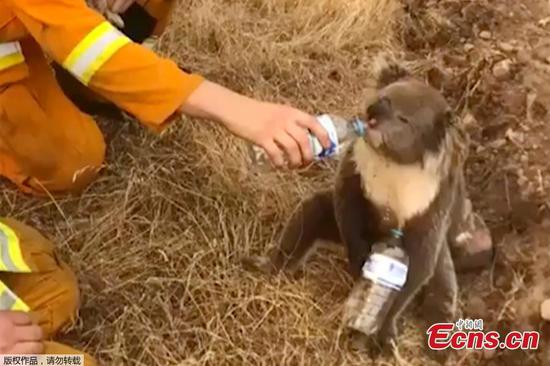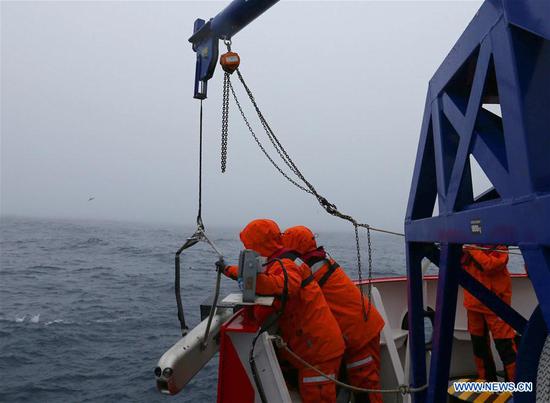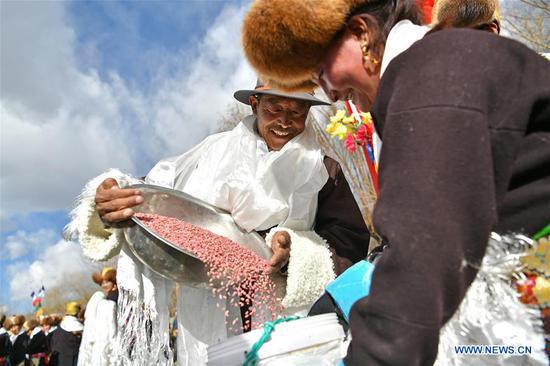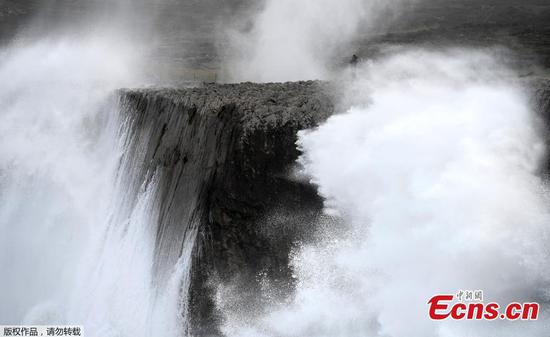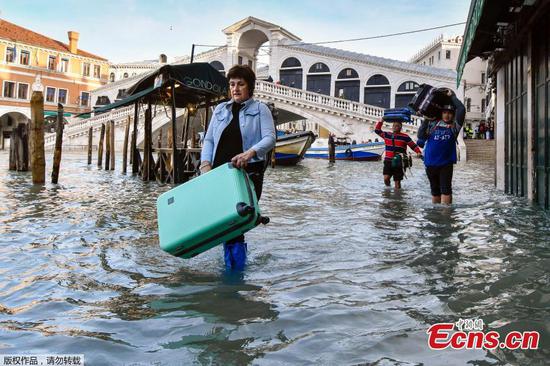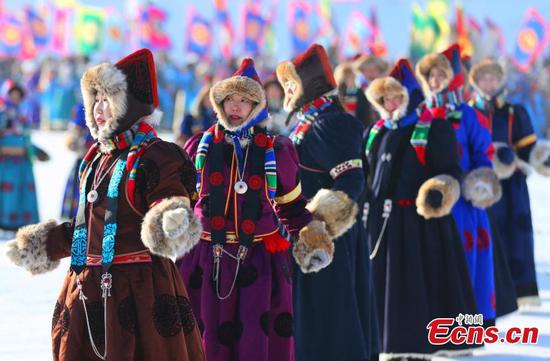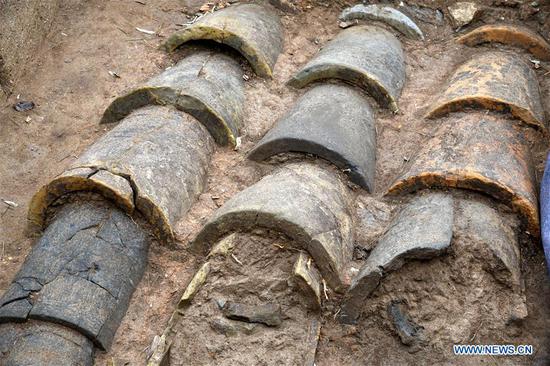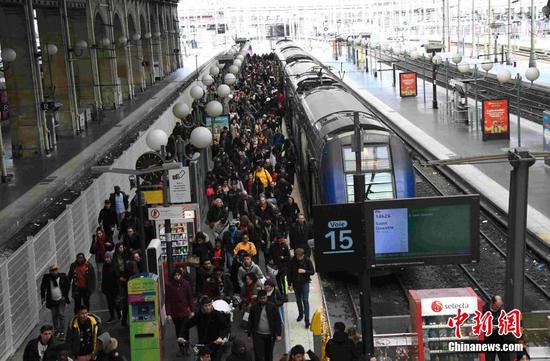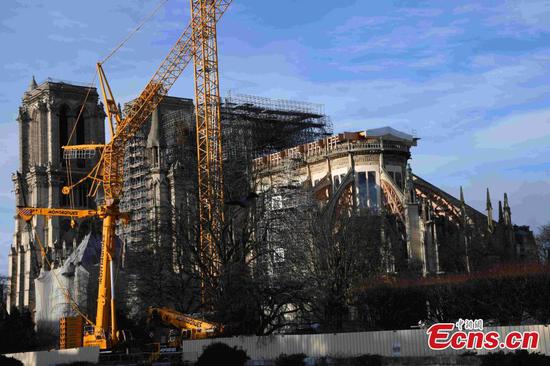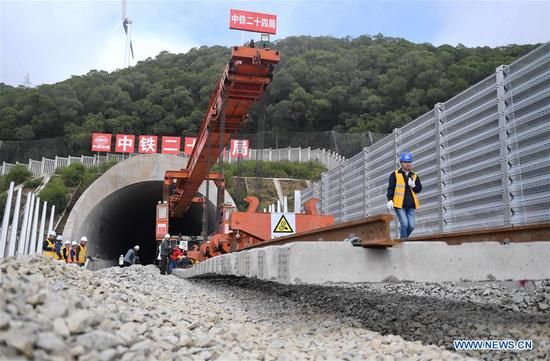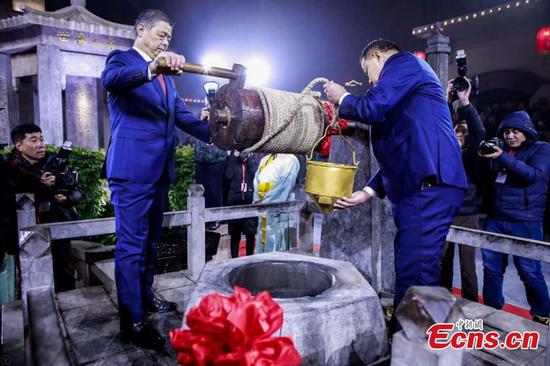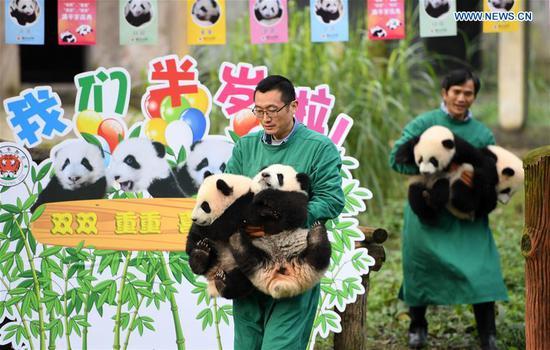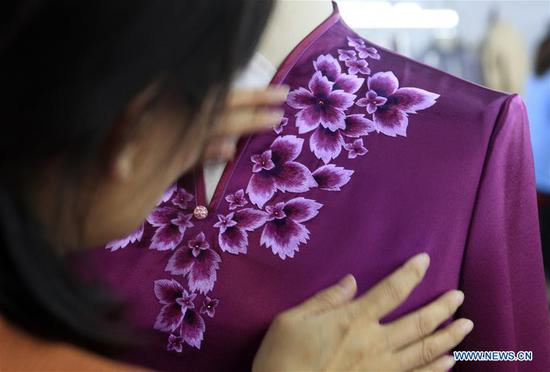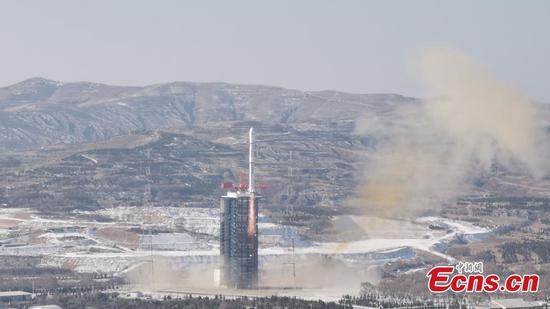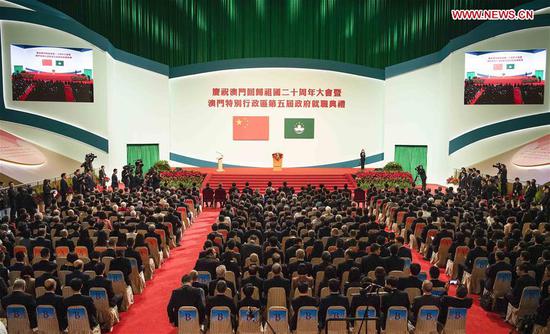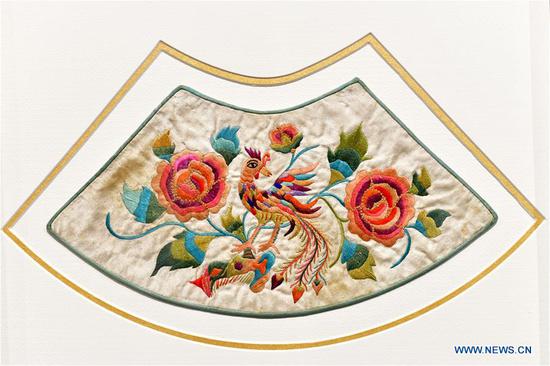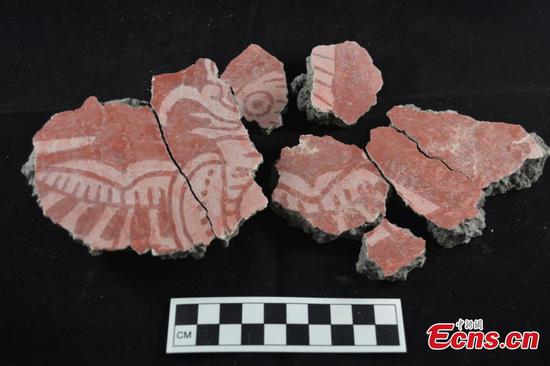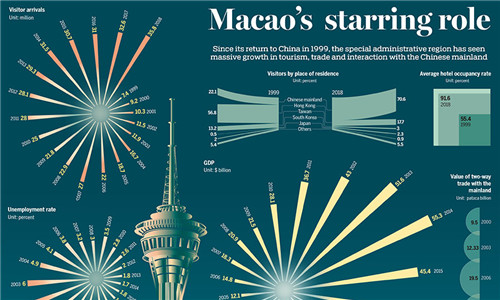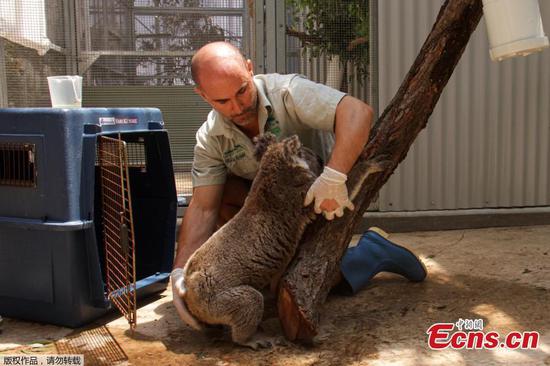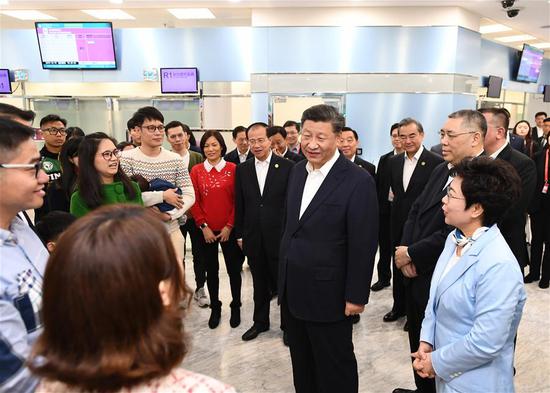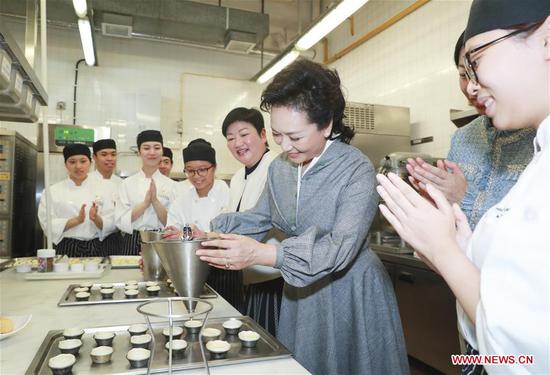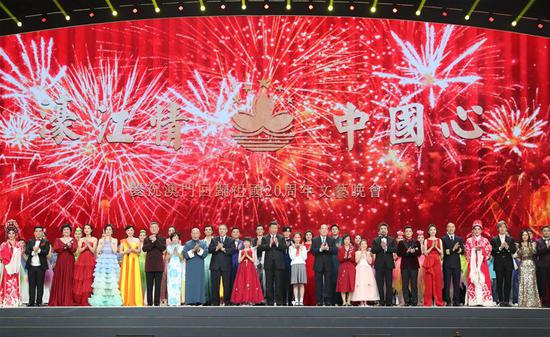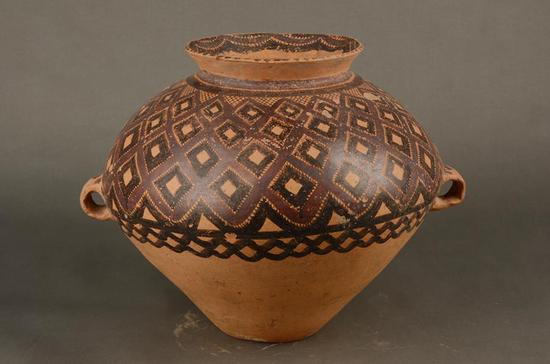
A teacher feeds a boy at a kingdergarten in Shishi, Fujian province. (Photo/Xinhua)
A local standard on child care providers' abilities and ethics for taking care of infants will come into effect at the end of the year in Hebei province, the first of its kind in the country, as child care services are being promoted nationwide.
The standard-Requirements for Child Care Workers' Professional Abilities-is aimed at regulating the behaviors of people whose job is to take care of babies under 3 years old, according to the Health Commission of Hebei website.
It requires employees of child care centers to have professional abilities and provide comprehensive quality as they care for babies, while promoting their intellectual development, which should be integrated into the process of babysitting.
Professional ethics, a passion for the job and an ongoing pursuit of related knowledge are also demanded by the standard.
A four-level system for child care workers' occupational qualifications is based on their educational background, work and training experience, and professional abilities, the standard said.
To nurture child care professionals, the province will accelerate the establishment of related courses at higher vocational colleges and training bases, according to a provincial guideline for implementing the central government's plans.
The country released a guideline on promoting the development of child care services for children under 3 years old in May in an effort to gradually meet the growing public demand for toddler care, according to the guideline published by the General Office of the State Council.
Child care has become a prominent issue for parents after the country began allowing all couples to have a second child in 2016.
The public's demand for baby care is far greater than supply, the Hebei government said. It said 70 percent of young parents in the province who refused to have a second child made the choice because of the shortage in care services.
Among the 2.55 million children under 3 years old in Hebei, 80 percent are under the care of their grandparents.
Nationwide, there are currently about 50 million children under 3 years old, Yu Xuejun, vice-minister of the National Health Commission, said at a news conference in May.
He said the care services for infants is key to protecting and improving people's livelihoods.
Despite the universal second-child policy, designed to encourage couples to have two children, the number of births on the Chinese mainland has fallen. Last year, the number of newborns was 15.2 million, 2 million less than in 2017, according to the National Bureau of Statistics.
The national guideline called for local authorities to include child care facilities in the planning of new residential areas. For existing residential areas without such facilities, measures must be adopted to purchase or rent areas to allow for their development.









